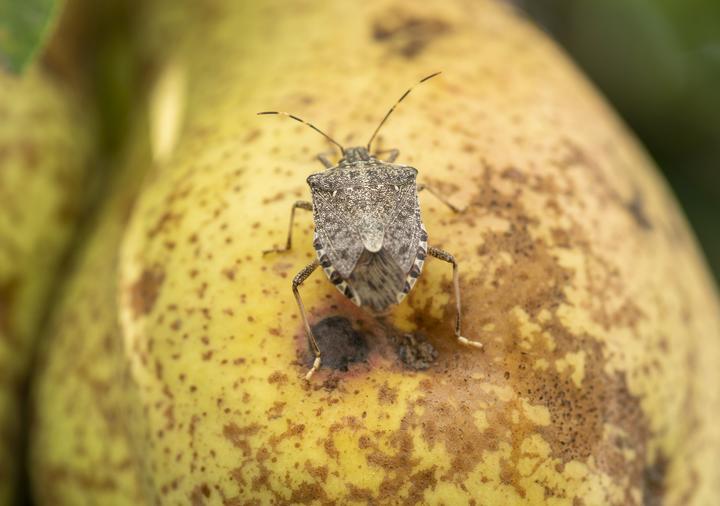Many pet parents have this question for their pets. The stink or shield beetle is an insect belonging to the Pentatomoidea family that produces an unpleasant odor to keep its prey away. If you touch it, you will find this foul smell due to the release of aldehydes (the chemical responsible for foul odor and some irritation).
These bugs do not bite or suck blood while residing on human beings or animals, and only suck plants sap from stems, leaves, and roots.
Leaving aside the question of smelly insects, one shouldn’t ignore that some insects carry certain diseases that can also help spread various internal parasites to your pets.
What are stink bugs?
Stink bugs are very unpleasant animals; their smell can poison one. This pest was given a stinking name due to its ability to release an unpleasant odor; however, this smell’s release was to keep its predators away.
Some of its categories also spray their stink from some inches away to keep its predator at bay, from coming to itself, and in this way, this pest protects itself from being eaten by different animals.
It is very easy to identify a stink bug since its body shape is usually a triangle or shield, have an antenna conventional in all bugs and pest. Its color is mottled greyish-brown and has six legs.

Are stink bugs poisonous to dogs?
Dogs are animals often referred to as man’s best friend, and so why would they have a little enemy. Since we have already stated that these bugs are not as harmful and poisonous as they sound, however, there are some possible consequences pour pets may experience while or after ingestion of these pests.
First of all, those dogs who swallow them may develop gastrointestinal distress and vomiting, which are usually time dependent and go away on their own in more than 8-12 hours. This happens due to an unpleasant secretion.
Secondly, since this insect’s discharge is annoying and gets into your dog’s eyes, expect it to cause pain and tingling sensations that won’t last long. The release can also worsen the gums, lips, and tongue, and therefore cause drooling.
Finally, because they are invasive pests, some farmers may use insecticides to control them. If your pet eats one that has been soaked in these insecticides, it can be harmful, as these foods contain toxic ingredients.
Are stink bugs poisonous to Cats?
Upon noticing, moving, hopping, flying, or crawling small critters, including insects and other bugs, a feline’s instincts to hunt for them will be activated. Hence, they will begin pursuing them. If you see your cat eating it, you should not be worried because these bugs are not harmful or toxic to your cat.
Since we know that these bugs produce nasty tasting and foul-smelling fluids to escape from their predators, therefore in most cases, most of the animals will not try to eat them. They will leave them once they get in touch with its nasty secretion that could irritate their tongue, lips, and mouth.
Also, if they happen to chew and swallow too many of these insects, there may be some intestinal irritation, vomiting, and even diarrhea. These symptoms should not bother you, as they will soon disappear after about half a day, meaning they are self-limiting.
But if your feline friend eats a lot of shield beetles/stink bugs, you should be aware that his shield (hardened shield) may not be absorbed because this will further complicate the situation and may cause a blockage in the animal’s gastrointestinal tract. Such blockages can be unpleasant in severe cases and require surgical removal.
What do stink bugs smell like?
It is often asked by the pet parents that what do stink bugs smell like. The smell has been described as “a pungent odor that smells like cilantro.” Smelly beetles’ ability to emit odor through openings in their belly is a defense mechanism designed to prevent it from being consumed by many animals like birds and lizards. However, merely handling a bug, damaging it, or moving it can provoke it to release the odor.
Interestingly, the scent composition is composed of chemicals commonly used as food additives. This smell is due to two acids, namely trans 2-decennial and trans-2-octenal, which can last for several hours, so if possible, try to avoid smelly insects or thoroughly sweep or vacuum them if they enter your home unless you need a face filled with intensely scented herbs and spices.


